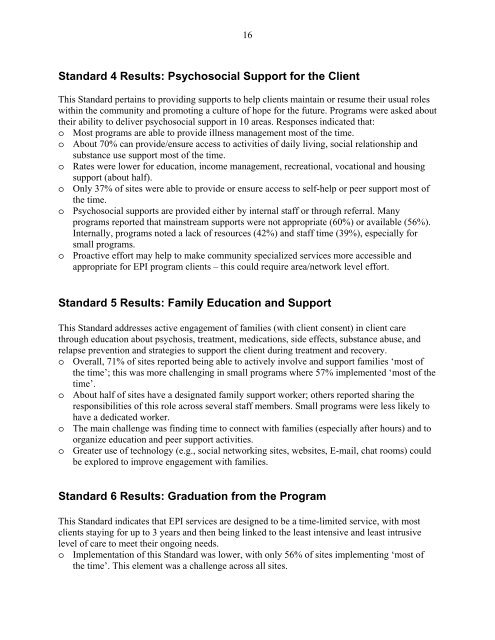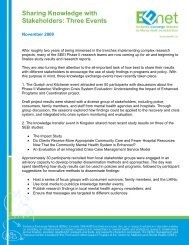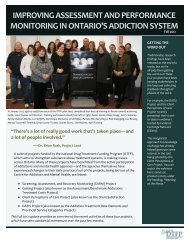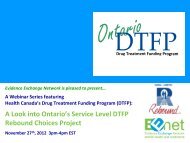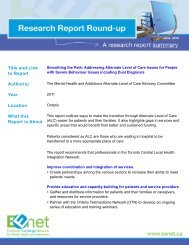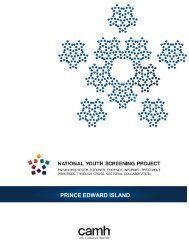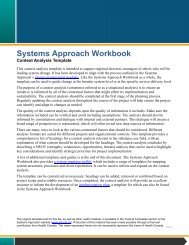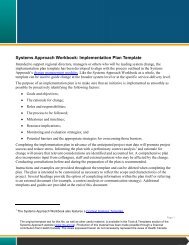Implementation of Early Psychosis Intervention Program ... - EENet
Implementation of Early Psychosis Intervention Program ... - EENet
Implementation of Early Psychosis Intervention Program ... - EENet
Create successful ePaper yourself
Turn your PDF publications into a flip-book with our unique Google optimized e-Paper software.
16Standard 4 Results: Psychosocial Support for the ClientThis Standard pertains to providing supports to help clients maintain or resume their usual roleswithin the community and promoting a culture <strong>of</strong> hope for the future. <strong>Program</strong>s were asked abouttheir ability to deliver psychosocial support in 10 areas. Responses indicated that:o Most programs are able to provide illness management most <strong>of</strong> the time.o About 70% can provide/ensure access to activities <strong>of</strong> daily living, social relationship andsubstance use support most <strong>of</strong> the time.o Rates were lower for education, income management, recreational, vocational and housingsupport (about half).o Only 37% <strong>of</strong> sites were able to provide or ensure access to self-help or peer support most <strong>of</strong>the time.o Psychosocial supports are provided either by internal staff or through referral. Manyprograms reported that mainstream supports were not appropriate (60%) or available (56%).Internally, programs noted a lack <strong>of</strong> resources (42%) and staff time (39%), especially forsmall programs.o Proactive effort may help to make community specialized services more accessible andappropriate for EPI program clients – this could require area/network level effort.Standard 5 Results: Family Education and SupportThis Standard addresses active engagement <strong>of</strong> families (with client consent) in client carethrough education about psychosis, treatment, medications, side effects, substance abuse, andrelapse prevention and strategies to support the client during treatment and recovery.o Overall, 71% <strong>of</strong> sites reported being able to actively involve and support families ‘most <strong>of</strong>the time’; this was more challenging in small programs where 57% implemented ‘most <strong>of</strong> thetime’.o About half <strong>of</strong> sites have a designated family support worker; others reported sharing theresponsibilities <strong>of</strong> this role across several staff members. Small programs were less likely tohave a dedicated worker.o The main challenge was finding time to connect with families (especially after hours) and toorganize education and peer support activities.o Greater use <strong>of</strong> technology (e.g., social networking sites, websites, E-mail, chat rooms) couldbe explored to improve engagement with families.Standard 6 Results: Graduation from the <strong>Program</strong>This Standard indicates that EPI services are designed to be a time-limited service, with mostclients staying for up to 3 years and then being linked to the least intensive and least intrusivelevel <strong>of</strong> care to meet their ongoing needs.o <strong>Implementation</strong> <strong>of</strong> this Standard was lower, with only 56% <strong>of</strong> sites implementing ‘most <strong>of</strong>the time’. This element was a challenge across all sites.


